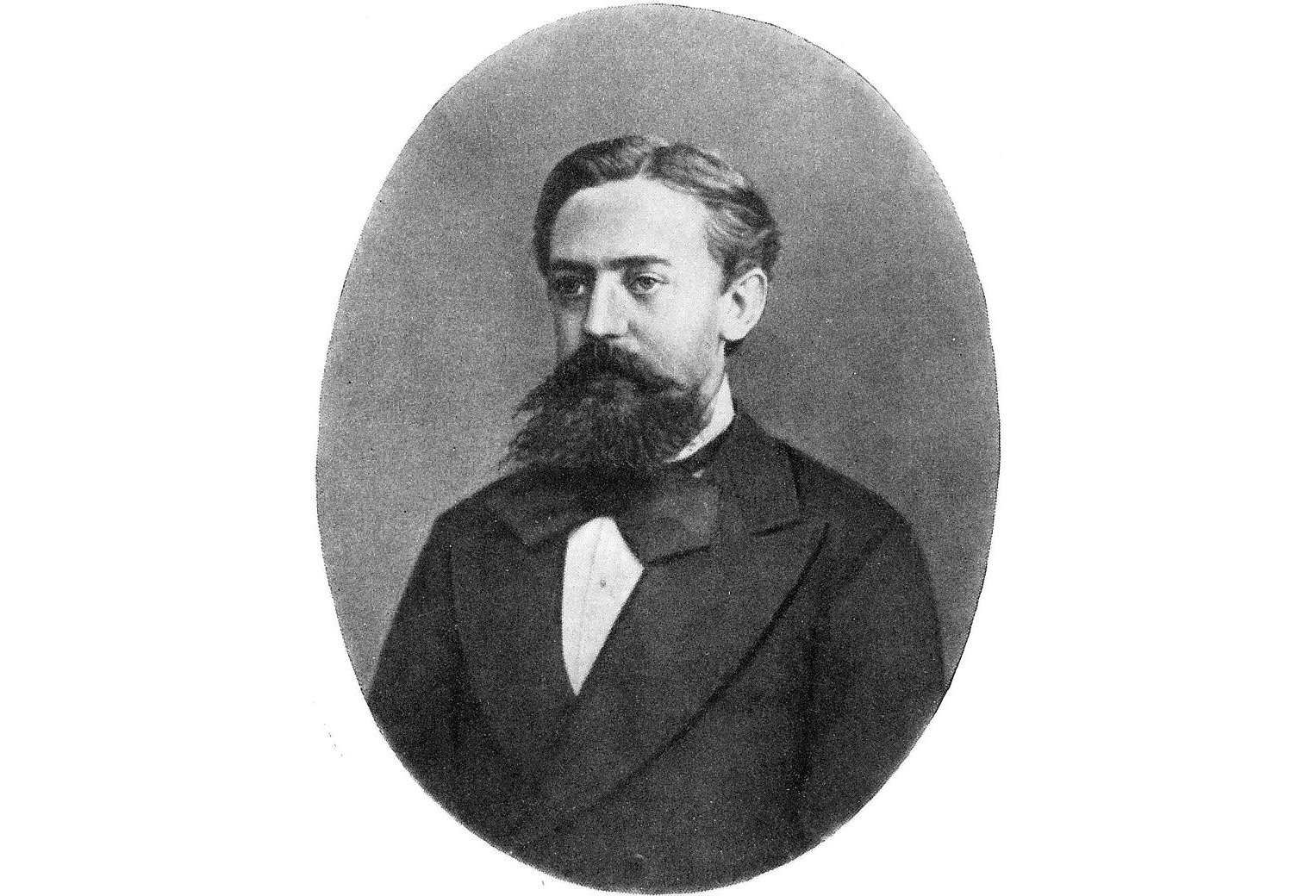
Andrey Markov, a renowned Russian mathematician, left an indelible mark on the field of probability theory with his groundbreaking contributions. Born on June 14, 1856, in Russia, Markov’s keen intellect and exceptional analytical skills propelled him to become one of the most influential figures in the field. Throughout his career, Markov developed the concept of Markov chains, a mathematical model that revolutionized stochastic processes and transformed various disciplines, including physics, computer science, and biology.
In this article, we delve into the life and work of Andrey Markov, uncovering 15 astonishing facts about this brilliant mathematician. From his early years and educational journey to his pioneering theories and lasting legacy, we explore the fascinating world of Andrey Markov and the profound impact he made in the realm of probability theory.
Key Takeaways:
- Andrey Markov’s work on Markov chains and probability theory has impacted diverse fields like language modeling, finance, and computer science, shaping the way we understand and predict complex systems.
- His groundbreaking research and prolific contributions have earned him recognition in the scientific community, inspiring future generations of mathematicians and scholars.
Andrey Markov revolutionized probability theory.
With his groundbreaking work on Markov chains, Andrey Markov made significant contributions to the field of probability theory. His discoveries laid the foundation for many applications in diverse areas such as genetics, finance, and computer science.
Markov was born on June 14, 1856, in Russia.
The renowned mathematician, Andrey Andreyevich Markov, was born in Ryazan, a city located southeast of Moscow. His early upbringing and education played a crucial role in shaping his future success in the field of mathematics.
Markov’s father was a Russian Orthodox priest.
Andrey Markov’s father, Ivan Pavlovich Markov, was a Russian Orthodox priest. Although his father’s profession was in religion, it did not restrict Andrey Markov’s pursuit of scientific knowledge and achievements.
Markov received his education at the University of Saint Petersburg.
Andrey Markov attended the prestigious University of Saint Petersburg, where he studied physics and mathematics. The quality of education and exposure to renowned scholars greatly influenced his academic and research pursuits.
Markov published his first significant work at the age of 19.
At a remarkably young age, Andrey Markov published his first notable research paper titled “On a Problem of Algebraic Curves,” establishing himself as a mathematical prodigy with immense potential.
Markov’s most famous contribution is the development of Markov chains.
Andrey Markov’s most influential work revolves around the concept of Markov chains, which are a mathematical model used to study systems that transition between states. This groundbreaking theory has applications in diverse fields, including language modeling, finance, and computer science.
Markov chains are widely used in natural language processing.
Thanks to Markov’s contributions, Markov chains are widely employed in natural language processing and text generation tasks. They play a crucial role in language modeling, enabling the prediction of the next word based on the previous sequence of words.
Markov’s research focused on the theory of probability and its applications.
Throughout his career, Andrey Markov dedicated his research to the theory of probability and its practical applications. His work on stochastic processes and random sequences paved the way for advancements in fields such as genetics and computer science.
Markov was elected as a member of the Russian Academy of Sciences.
In recognition of his significant contributions to mathematics and probability theory, Andrey Markov was elected as a member of the prestigious Russian Academy of Sciences. This honor highlights the impact and importance of his work within the scientific community.
Markov’s work had a profound influence on the study of randomness.
Andrey Markov’s research significantly advanced the understanding and study of randomness in various fields. His theories and models have become fundamental tools for analyzing complex systems and predicting their future behavior.
Markov’s legacy continues through the Markov Prize.
To honor Andrey Markov’s contributions to mathematics and probability theory, the Russian Academy of Sciences established the Markov Prize. This prestigious award is bestowed upon mathematicians for outstanding achievements in the field of probability theory and related disciplines.
Markov’s research on queuing theory revolutionized telecommunications.
Andrey Markov’s investigations into queuing theory, a branch of applied mathematics, revolutionized the field of telecommunications. His insights and models have played a crucial role in optimizing traffic flow and improving efficiency in communication networks.
Markov’s work laid the foundations for the study of random processes.
Andrey Markov’s theories on stochastic processes and Markov chains laid the foundations for studying and analyzing random processes. His innovative approach has influenced numerous areas of research, including physics, biology, and information theory.
Markov’s research on the law of large numbers had a significant impact.
By extending the law of large numbers, Andrey Markov contributed to the understanding of the behavior of random variables. His findings and theorems have become invaluable tools for statisticians and researchers dealing with large data sets.
Markov’s publications include over 300 research papers.
Andrey Markov’s remarkable research output includes more than 300 published papers. His prolific contributions have left an enduring legacy in the field of mathematics and probability theory, earning him a place among the distinguished mathematicians of his time.
Conclusion
In conclusion, Andrey Markov was an extraordinary mathematician whose contributions in probability theory and stochastic processes continue to have a profound impact on various fields of study. His pioneering work on Markov chains laid the foundation for modern data analysis, artificial intelligence, and machine learning algorithms. Markov’s research not only revolutionized the way we understand and model random processes but also informed decision-making processes in a wide range of disciplines, including economics, genetics, and engineering. His theoretical advancements and the Markov property continue to shape the way we analyze and predict dynamic systems.
FAQs
Q: Was Andrey Markov known for any other contributions apart from Markov chains?
A: Yes, Markov made significant contributions to other areas of mathematics as well. He worked on number theory, orthogonal polynomials, and the theory of functions of a complex variable.
Q: Are Markov chains still used today?
A: Absolutely! Markov chains are widely used in various applications such as natural language processing, information retrieval, finance, and weather forecasting. Their ability to model and predict random processes with memory makes them invaluable in understanding real-world systems.
Q: Can you provide an example of a real-world application of Markov chains?
A: One example is Google’s PageRank algorithm, which utilizes Markov chains to rank web pages based on their importance. Another application is in modeling and predicting stock market behavior, where Markov chains help analyze the transitions and dependencies between different market states.
Q: Is it necessary to have a strong background in mathematics to understand Markov chains?
A: While a basic understanding of probability theory is helpful, it is not essential to have an extensive mathematical background to comprehend the fundamentals of Markov chains. Many introductory resources and tutorials are available that explain the concept in a more accessible manner.
Q: Are there any limitations or challenges associated with Markov chains?
A: One limitation is that Markov chains assume a fixed set of states and probabilities, which might not accurately reflect complex real-world scenarios. Additionally, some systems may possess memory effects that cannot be fully captured by traditional Markov models, requiring more advanced techniques.
Andrey Markov's groundbreaking work in probability theory and mathematics continues to inspire researchers today. If you're fascinated by the world of numbers, explore the mind-blowing facts about Blaise Pascal, a pioneer in probability theory. For a broader look at the field, delve into our collection of mathematics facts that showcase the beauty and complexity of this discipline. And if you're interested in applying statistical modeling to real-world problems, don't miss our essential facts about R, the powerful language for statistical computing.
Was this page helpful?
Our commitment to delivering trustworthy and engaging content is at the heart of what we do. Each fact on our site is contributed by real users like you, bringing a wealth of diverse insights and information. To ensure the highest standards of accuracy and reliability, our dedicated editors meticulously review each submission. This process guarantees that the facts we share are not only fascinating but also credible. Trust in our commitment to quality and authenticity as you explore and learn with us.


